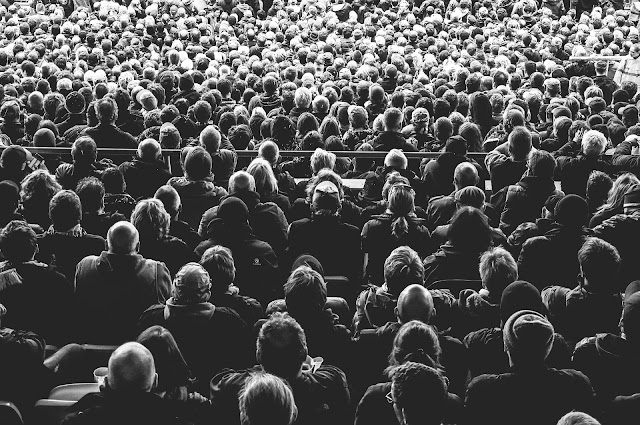The past few weeks have seen the passing of the both Republican National Convention and the Democratic National Convention. Many excellent speeches were made at both, regardless of whether I agreed with all, some, or none of the content.
But it got me thinking about what really goes into an excellent speech. (I'll give you a hint: It's not logic.) See this humorous compilation of examples from the RNC or this example from the DNC. (It's too soon for a compilation from the DNC. Maybe later.) UPDATE (Aug 2): Here is a compilation from the DNC (but it also contains an impassioned appeal against Trump).
Have any of you ever read about crowd theory? Probably not many of you have read Gustave Le Bon's The Crowd. It's an old book but still quite interesting. In it, Le Bon writes:
The characteristics of the reasoning crowds are the association of dissimilar things possessing a merely apparent connection between each other, and the immediate generalization of particular cases. It is arguments of this kind that are always presented to crowds by those who know how to manage them. They are the only arguments by which crowds are to be influenced. A chain of logical argumentation is totally incomprehensible to crowds, and for this reason it is permissible to say that they do not reason or that they reason falsely and are not to be influenced by reasoning. Astonishment is felt at times on reading certain speeches at their weakness, and yet they had an enormous influence of the crowds which listened to them, but it is forgotten that they were intended to persuade collectivities and not to be read by philosophers. An orator in intimate communication with a crowd can evoke images by which it will be seduced. If he is successful his object has been obtained, and twenty volumes of harangues -- always the outcome of reflection -- are not worth the few phrases which appealed to the brain it was required to convince.Obviously this is just a snippet. Hopefully the ideas, divorced from the context as they are, still make sense. (As I know the book and the context, sometimes it is hard to know if the ideas presented are clear to the uninitiated.)
Then I got to thinking beyond the speeches. What about social media, a.k.a. internet 2.0?
Facebook, Twitter, Instagram and the whole lot of them are essentially large crowds. Memes (images divorced from reasoning) rule the day. We're constantly trolling for likes from those in agreement with us and ganging up on those that don't. We so quickly descend into personal insults and labels and cliches rather than truly engaging in reasoning.
Could it be that social media, rather than bring about a more educated populace, has simply helped us create mobs and coalitions, resistant to reflection, rejecting true thought?
It's an idea.

No comments:
Post a Comment